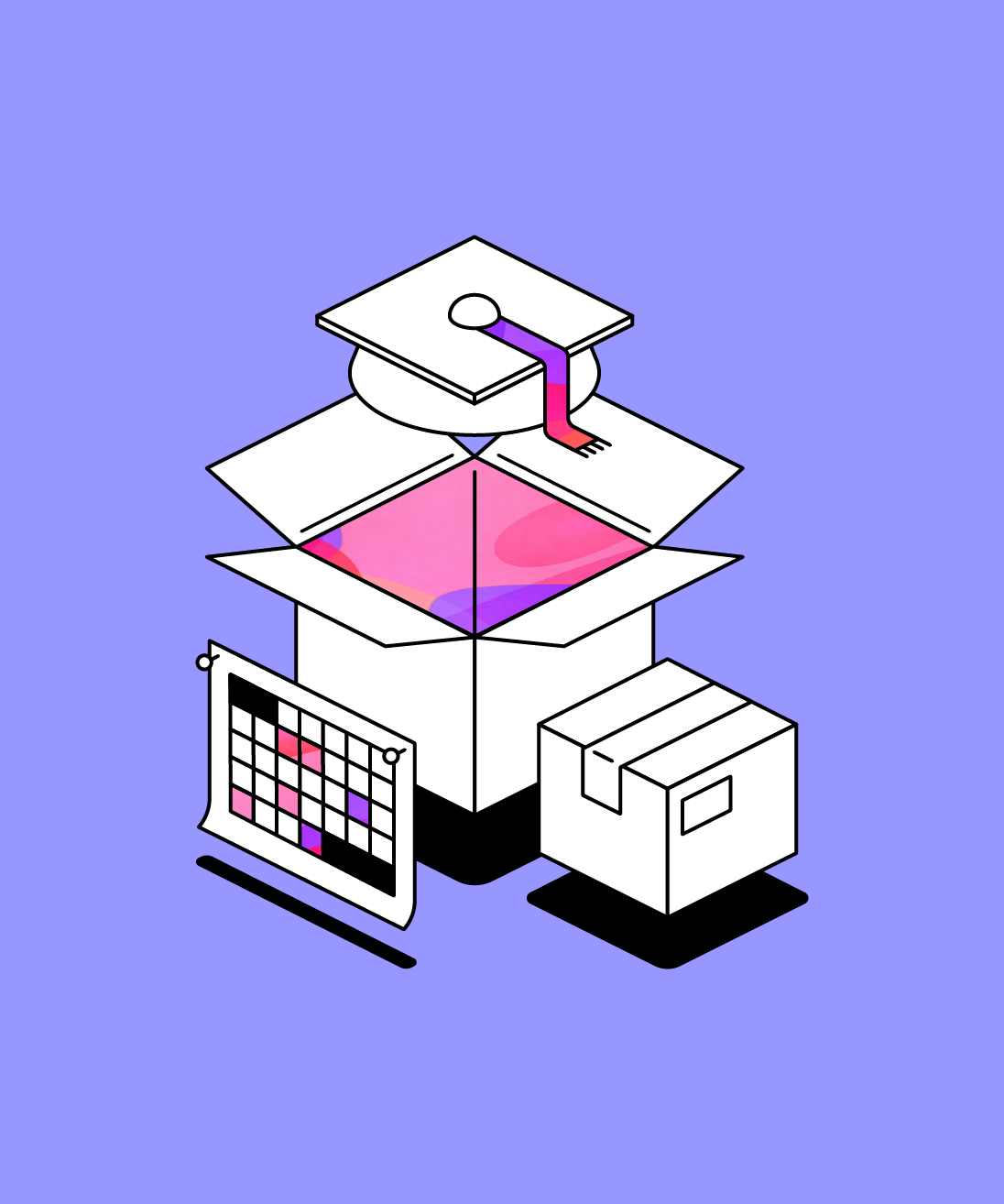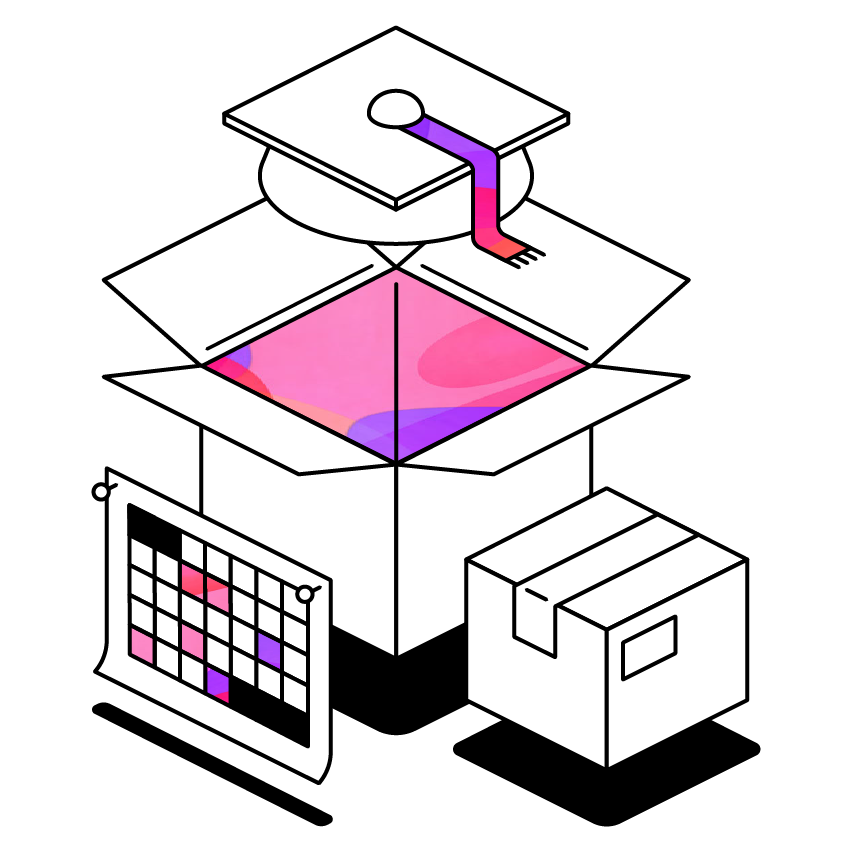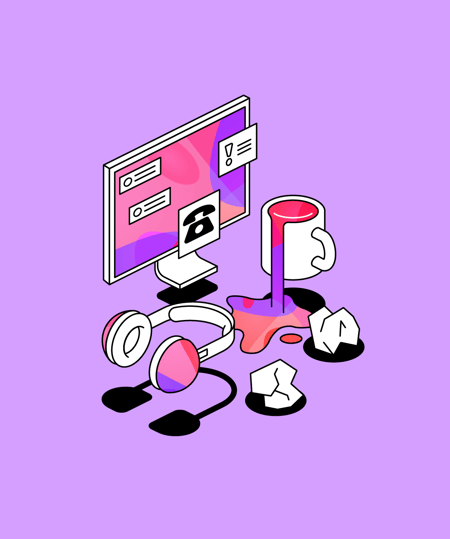AI literacy and the new era of academic preparedness
AI is having a seismic impact on higher education and both institutions and learners must prepare for this shift. Here we explore why AI literacy is fast becoming one of the most fundamental study skills for modern learners.
 3 min read
3 min read
 Published: 28 Jul 2025
Published: 28 Jul 2025
 Jacob Goodwin
Jacob Goodwin


A growing wave of non-traditional students are entering colleges across the United States, bringing with them a wealth of experiences and perspectives that undoubtedly enrich the academic environment.
For many, the transition to the rigors of higher education is fraught with difficulty, with many learners unaware of the realities they will face. Unfortunately, this results in a large percentage of learners struggling to navigate college life, leading to a cycle of disengagement.
The demographic shift brought on by the New Majority only further amplifies the issue of academic preparedness. These learners often lack the cultural capital that allows them to better understand what they will be facing in college and find ways to overcome their fundamental learning challenges.
Many institutions have measures in place to support learners in their transition but in recent years, the goalposts have shifted. The reality is that the lack of preparedness across the cohort now extends to a critical new domain, AI literacy.
The foundations of academic preparedness
Academic preparedness is a comprehensive concept that extends beyond simply meeting entry requirements such as grades and standardized test scores. It represents the full suite of skills, knowledge, and mindset essential for a student to thrive in the higher education environment.
This holistic readiness includes crucial competencies such as foundational subject knowledge, critical thinking, effective problem-solving, time management, and the ability to advocate for oneself. The importance of this preparedness cannot be overstated, as it directly correlates with student success, persistence, and timely graduation.
For institutions, the level of student preparedness across their cohort is a critical issue. Students who arrive underprepared often enter a negative cycle of poor academic performance and disengagement, which significantly increases their likelihood of dropping out. This outcome not only affects the individual student's future but also harms the institution's retention and graduation rates.
It is essential for them to have a vested interest, and play a significant role in, bridging this preparedness gap.
A new frontier of study skills
Alongside the conventional skills associated with academic preparedness, institutions are facing a compounded challenge due to the rapid rise of AI. While many of today's students are digital natives, their familiarity with technology does not necessarily translate to AI literacy.
They are keenly aware that they are entering a world shaped by technology and it is this reality that higher education leaders can harness to inspire them. By framing AI literacy as an essential tool for empowerment they can convert awareness into a significant competitive advantage.
Despite the opportunities the technology presents, there is however a growing AI literacy gap characterized by a paradoxical combination of high usage and high anxiety. A HEPI survey found that 92% of undergraduates are using AI, and while 76% of institutions say they could spot AI in assessments, only 36% of students are being supported to develop AI skills.
AI education is more than a nice to have; it is an opportunity for your learners to become creators, innovators, and critical thinkers in a new technological era. If this gap is left unchecked, the ramifications will be extensive, for institutions and learners alike.
This is where the concept of productive friction becomes particularly pertinent. Productive friction refers to the aspects of the learning process that challenge students to think critically and engage deeply with the material. Unproductive friction, on the other hand, refers to logistical or administrative hurdles that impede learning without adding educational value.
Institutions should look to guide how their students utilize AI throughout their education, maximising productive rather than unproductive uses and the development of this skill into their programmes from the outset. In the absence of direction, the negative possibilities are endless as students are left fumbling in the dark, trying to harness emerging technologies while simultaneously retaining academic integrity.
Charting a course for an AI future
The reality of an academically underprepared student population and the rise of AI presents both a challenge and an opportunity for higher education. To ensure that all students have an equitable chance at success, institutions must broaden their understanding of academic preparedness to include AI literacy.
This means not only providing students with foundational study skills but also equipping them with the knowledge and critical thinking abilities to navigate the complex landscape of AI in a responsible and effective manner.
We can't possibly know what the future will bring with AI, but by empowering learners with guidance, they can proactively develop the skills necessary to be flexible and adaptable in an ever-changing world.
By addressing the AI literacy gap head-on, institutions will empower a new generation of students to harness AI efficiently and effectively, facilitating their development in the world of higher education and beyond.
More from Supporting Students
View All
 2 min read
2 min read
How AI note taking tools can bridge learning gaps for STEM students with disabilities
Here, we explore how AI powered note taking tools act as a critical scaffold for STEM students with disabilities, helping with active conceptual engagement. This post breaks down how live transcripts and AI-generated retrieval practice. like quizzes, empower students to navigate technical subjects with full academic independence.

 3 min read
3 min read
How Genio Present can help students become more confident speakers
Students with anxiety or Specific Learning Differences can struggle to participate in oral assessments confidently and equitably. Learn how Genio Present helps students overcome public speaking anxiety, transforming nervousness into confidence and improving academic performance through innovative rehearsal techniques based on learning science.

 5 min read
5 min read
6 accessible learning apps for college students in 2026
Selecting tools that bridge accessibility and independence can be a transformative step in a student’s academic journey, fostering skills that last long after graduation. Here, we explore 2026’s top accessible learning apps, which empower students by automating unproductive barriers while preserving the deep, active engagement essential for true learning.





